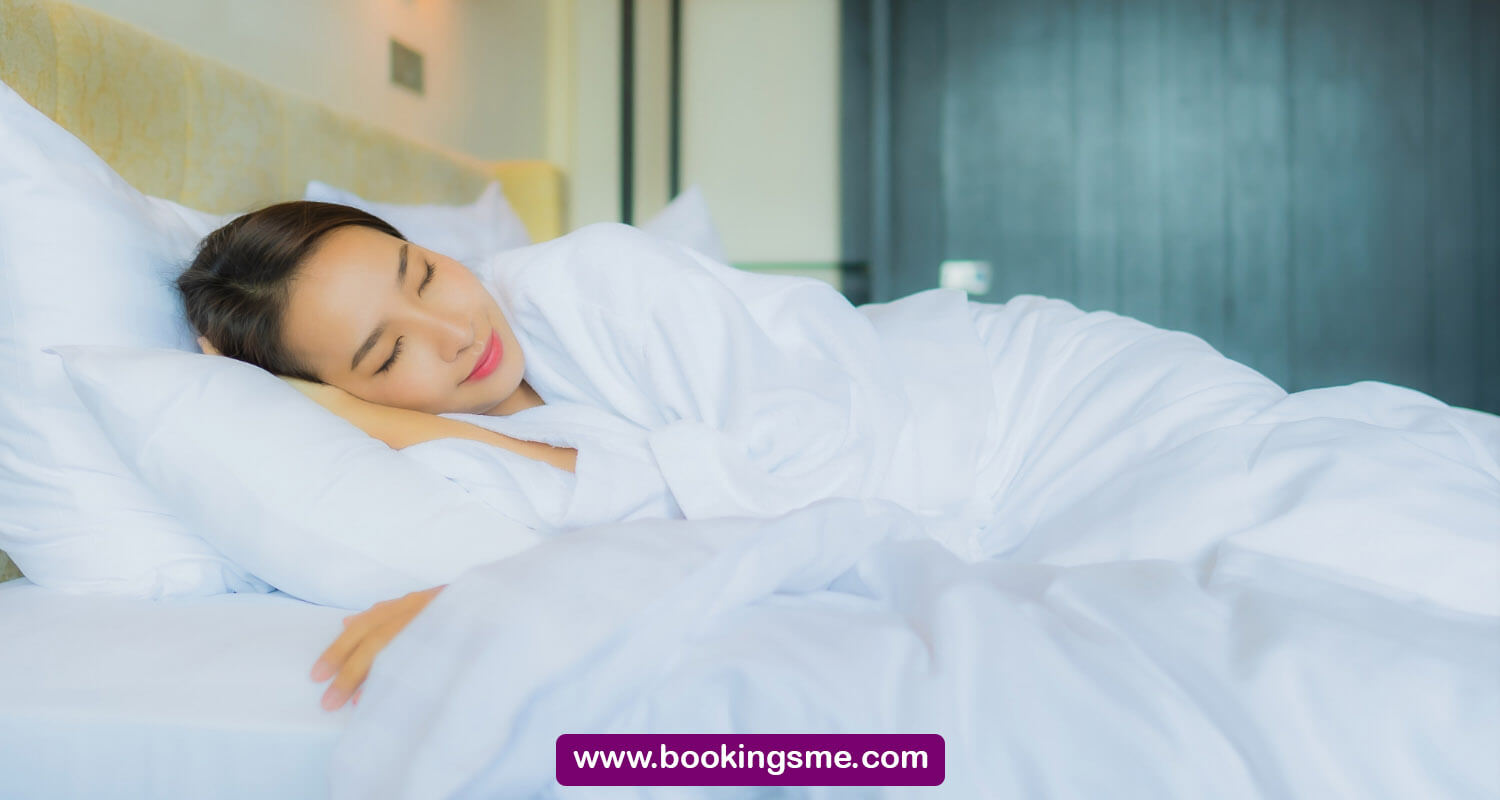When it comes to providing a restful and indulgent night’s sleep, hotels spare no expense in creating an atmosphere of comfort and luxury. One key element that contributes significantly to this experience is the choice of comforters.
Have you ever wondered, what comforters do hotels use? In this comprehensive guide, we’ll delve into the world of hotel bedding, exploring the types of comforters favored by the hospitality industry and the reasons behind their selection.
Read also: What Pillows Do Hotels Use
The Quest for Luxury:
Hotels are synonymous with opulence and comfort, aiming to create an environment that exceeds guests’ expectations. The quest for the perfect comforter is an integral part of this endeavor. Hoteliers meticulously select bedding that not only provides warmth but also elevates the overall sleeping experience.
Down Comforters: A Staple in Luxury Bedding:
One of the most common types of comforters found in upscale hotels is the down comforter. Filled with the soft and insulating undercoating of duck or goose feathers, these comforters offer a cloud-like experience. The high fill power of down ensures exceptional loft, providing a plush and cozy sensation that guests often associate with luxurious accommodations.
Thread Count and Fabric Quality:
Beyond the filling, hotels pay meticulous attention to the fabric quality and thread count of their comforters. High thread count cotton covers are a popular choice for their softness and breathability. This attention to detail enhances the overall tactile experience, making guests feel enveloped in a cocoon of comfort.
Hypoallergenic Options for Guest Satisfaction:
To cater to a diverse range of guests, many hotels opt for hypoallergenic comforters. These alternatives provide the same level of comfort as traditional down comforters but are crafted with synthetic materials that are less likely to trigger allergies. This thoughtful consideration reflects the commitment of hotels to prioritize guest satisfaction and well-being.
Variety in Weight for Seasonal Comfort:
Hotels often provide comforters with varying weights to accommodate different seasons. Lighter comforters are favored in warmer months, ensuring guests don’t feel overheated, while heavier options provide extra warmth during colder periods. This adaptability allows hotels to offer a comfortable sleep experience year-round.
The Role of Duvets and Covers:
In addition to the comforter itself, hotels carefully select duvets and covers to complement the overall aesthetic and functionality of the bedding. Duvet covers serve both practical and aesthetic purposes, protecting the comforter while adding a touch of style to the room. Hotels frequently choose covers that are easy to launder, maintaining a pristine and inviting sleeping environment for each new guest.

What Comforters Do Hotels Use
Expert Insights: Interviews with Hoteliers and Bedding Suppliers:
To gain further insights into the world of hotel comforters, we reached out to industry experts, including hoteliers and bedding suppliers. The consensus among them is that hotels prioritize quality, durability, and guest satisfaction when selecting comforters. Suppliers often work closely with hotels to create customized bedding solutions that align with the brand’s identity and the desired guest experience.
Sustainable and Eco-Friendly Options:
As environmental consciousness grows, hotels are increasingly turning to sustainable and eco-friendly bedding options. Bamboo and organic cotton comforters are gaining popularity, offering a blend of comfort and eco-consciousness. These choices not only align with the global push for sustainability but also resonate with guests who value responsible and ethical practices.
Read more: How Do Hotels Smell So Good
Rigorous Cleaning and Maintenance:
To ensure that every guest experiences the same level of comfort and cleanliness, hotels adhere to strict cleaning and maintenance protocols for their bedding. Professional laundering processes and regular inspections are standard practices, guaranteeing that comforters remain in pristine condition, free from allergens and wear.
Conclusion:
In conclusion, the question of what comforters do hotels use. It is a carefully curated selection aimed at providing guests with an unparalleled sleeping experience. From the plushness of down comforters to the versatility of hypoallergenic options, hotels prioritize quality and guest satisfaction.
As emerging trends in sustainability take center stage, the future of hotel comforters may see an even greater emphasis on eco-friendly materials. So, the next time you sink into the luxurious embrace of a hotel bed, you’ll have a deeper appreciation for the thought and care that goes into creating the perfect sleeping haven.
What types of comforters do hotels use?
Hotels often use down comforters filled with duck or goose feathers for a luxurious sleeping experience. Additionally, hypoallergenic options made from synthetic materials are popular to cater to guests with allergies.
Why do hotels choose down comforters?
Down comforters provide exceptional loft and a cloud-like experience, offering a plush and cozy sensation. The high fill power of down ensures warmth without excessive weight, contributing to a restful night’s sleep.
Do hotels consider the thread count of comforter covers?
Yes, hotels pay close attention to the thread count and fabric quality of comforter covers. High thread count cotton covers are often preferred for their softness and breathability, enhancing the overall tactile experience.
Are there seasonal variations in hotel comforters?
Yes, hotels often provide comforters with varying weights to accommodate different seasons. Lighter comforters are used in warmer months to prevent overheating, while heavier options offer extra warmth during colder periods.
What role do duvets and covers play in hotel bedding?
Duvets and covers complement the overall aesthetic and functionality of hotel bedding. Duvet covers protect the comforter and add a touch of style to the room. Hotels choose covers that are easy to launder, maintaining a clean and inviting sleeping environment.


